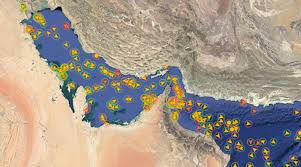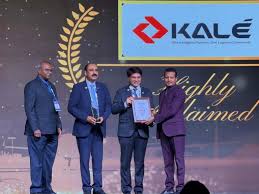Dr. Joshua Ebenezer shares insights on ICETABs, mobile tablets transforming India’s customs processes. By enabling real-time, paperless examinations, they enhance efficiency, transparency, and speed in trade facilitation, marking a significant milestone in customs modernisation.

ICETABs, mobile tablets, are revolutionising India’s customs processes
Driving trade efficiency
India’s global recognition for trade facilitation has reached new heights. According to the UNESCAP Global Survey on Digital and Sustainable Trade Facilitation, India’s trade facilitation implementation score soared from 78.49 percent in 2019 to an impressive 93.55 percent in 2023. This leap underscores the nation’s commitment to simplifying trade processes through innovative technologies. The Customs Ease of Doing Business Compendium 2024 by the Central Board of Indirect Taxes & Customs (CBIC) further highlights India’s achievements in boosting trade efficiency.
Taking modernisation a step further, the introduction of ICETABs—a mobile tablet initiative launched in August 2024—is revolutionising customs operations, making the clearance process faster, more transparent, and paperless.
What ICETAB offers
ICETAB is a user-friendly mobile device designed to enable customs officers to perform real-time, paperless examination and clearance tasks. Key features include:
- Direct access to essential documents such as the Bill of Entry, RMS instructions, and examination orders on the tablet.
- On-the-spot submission of examination reports for quicker processing and enhanced transparency.
- Image capture functionality, allowing up to four photos of cargo to be linked with the Bill of Entry and stored in the e-Sanchit repository for future reference.
By integrating seamlessly with other customs systems, ICETAB significantly reduces the time and effort needed for cargo examination, ensuring a smooth and efficient process.
Stakeholder benefits
The ICETAB initiative brings wide-ranging benefits to stakeholders in the trade ecosystem:
- Transparency: Real-time uploads and digital storage provide a clear and auditable record of examinations.
- Efficiency: Faster customs clearance minimises delays in import logistics, enhancing overall trade performance.
- Error reduction: Paperless processes eliminate manual mistakes, improving communication between customs officials and importers.
Additionally, the integration of ICETAB with the Risk Management System (RMS) ensures targeted inspections by flagging high-risk consignments while expediting the clearance of low-risk imports.
Seamless implementation
To facilitate adoption, CBIC has issued detailed advisories through DG Systems, ensuring customs officers are well-equipped to use ICETABs effectively. Training programs and technical support are being provided to stakeholders, with Customs Commissioners monitoring weekly progress to address challenges and maintain optimal network connectivity for the system.
India’s digital future
The introduction of ICETABs marks a significant milestone in India’s journey toward digital trade facilitation. By transforming the customs examination process, ICETAB enhances speed, transparency, and efficiency, creating a win-win for businesses and the government. This initiative reaffirms India’s commitment to leveraging digital tools for global trade competitiveness, paving the way for a future where customs operations are entirely paperless.











